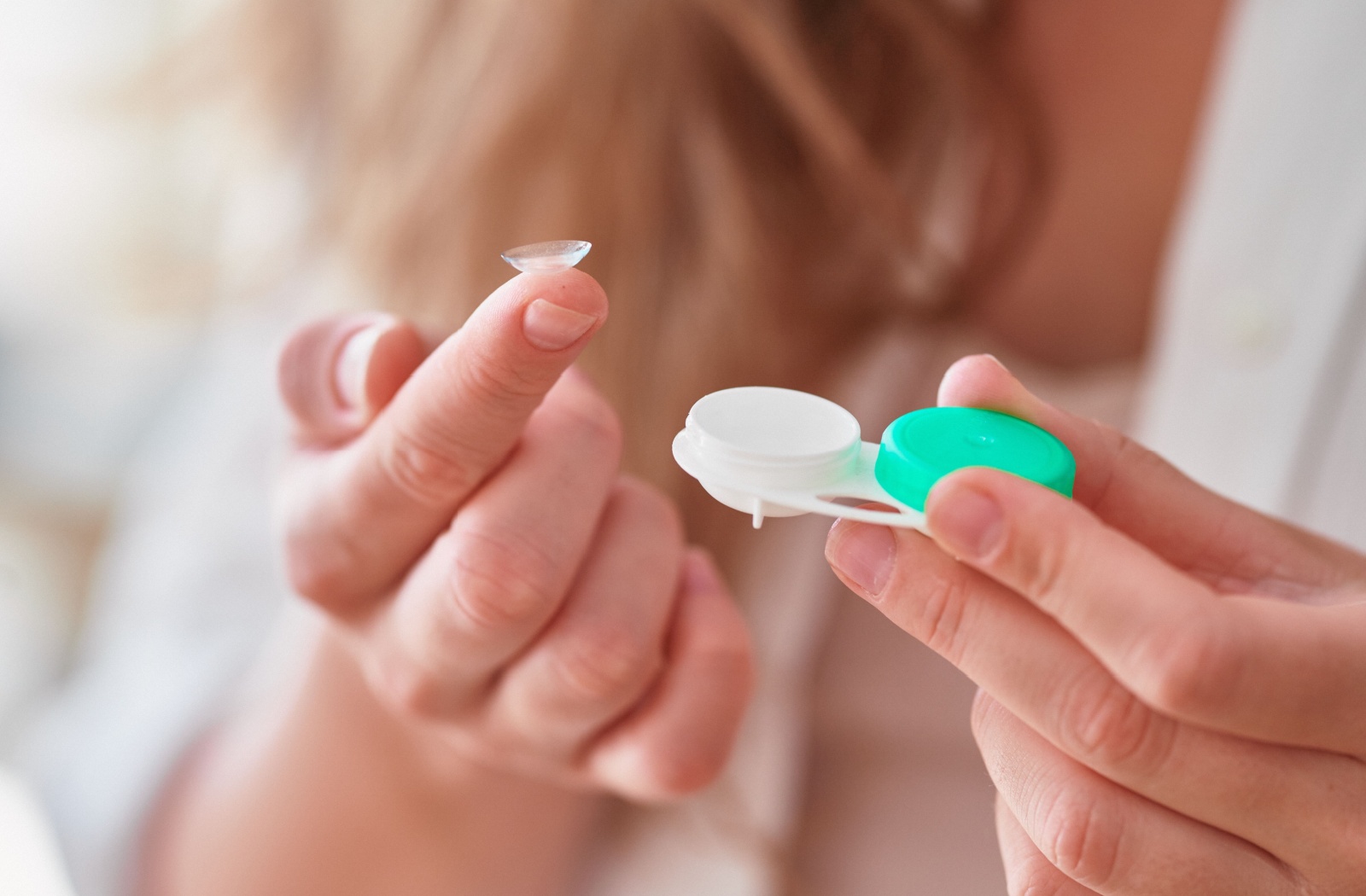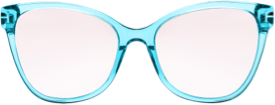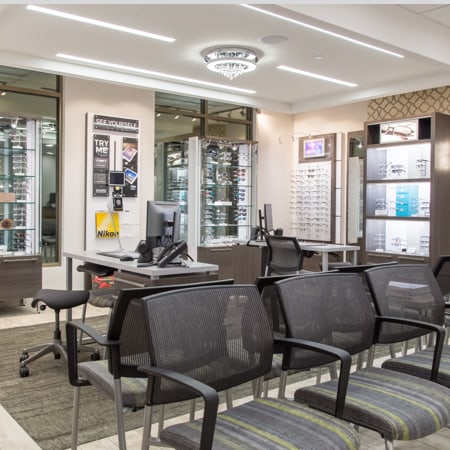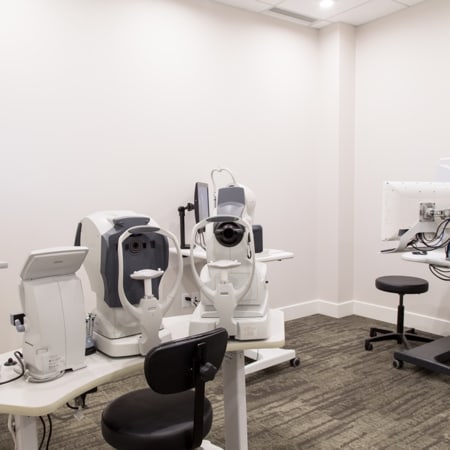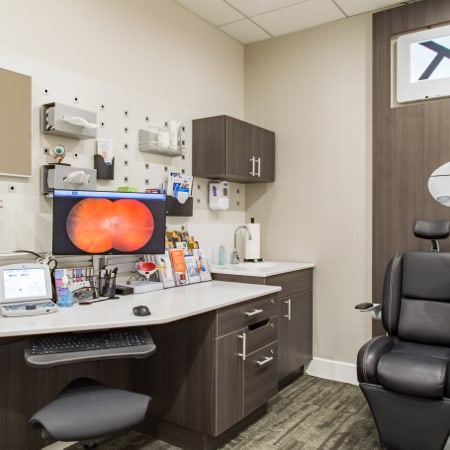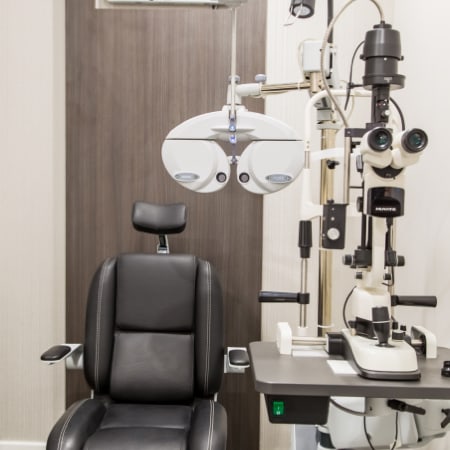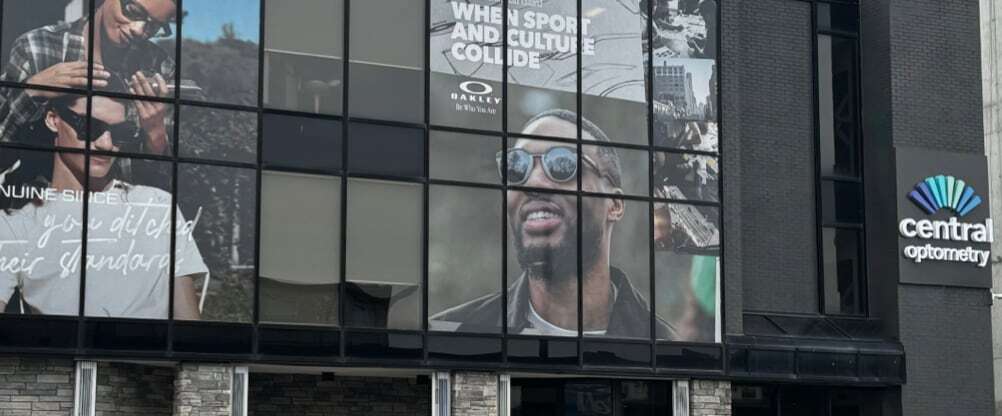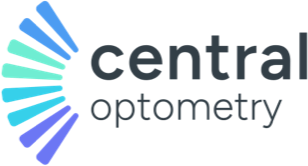If dry, irritated eyes are making you wonder whether contact lenses are still an option, you’re not alone. Many people experience dry eye disease. Sometimes it’s mild enough to manage with small adjustments, but in other cases, it can make wearing traditional contact lenses uncomfortable. Fortunately, with the right care and the right type of lenses, clear and comfortable vision is still possible.
Dry eye symptoms don’t have to mean giving up contacts altogether. In many cases, specialty lenses such as scleral lenses, or daily disposables designed for moisture retention, can help patients with dry eye continue to enjoy the benefits of contact lenses.
Let’s explore how dry eye works, what treatment options are available, and how it’s possible to manage both dry eye and contact lens wear at the same time.
What Is Dry Eye Disease?
Dry eye disease happens when either your eyes don’t produce enough tears or the tears produced are poor quality. This lack of lubrication can cause irritation, discomfort, and even blurred vision. There are two main subtypes:
- Aqueous deficiency dry eye – not enough tears are produced
- Evaporative dry eye – tears evaporate too quickly, often due to issues with the oil layer of the tear film
Dry eye can be linked to a number of factors, including:
- Age
- Reduced blinking (often from screen use)
- Certain medical conditions like arthritis, Parkinson’s disease, or diabetes
- Previous eye surgery
- Medications such as allergy or blood pressure treatments
- Preservatives in eye drops
- Hormone replacement therapy
- Contact lens use that reduces corneal sensitivity
- Blepharitis or meibomian gland dysfunction (MGD)
Self-Care Without a Prescription
Some patients can find relief from mild dry eye symptoms by making small changes at home. These strategies aren’t a replacement for professional care, but they can support eye comfort between appointments:
- Keeping the air humid to help reduce tear evaporation
- Warm compresses to loosen oils in the eyelids
- Preservative-free lubricating eye drops for long-term moisture support
Your optometrist may also recommend take-home products, such as:
- Omega-3 Supplements from PRN – These omega-3 capsules support healthy tear production by improving the tear film’s oil layer. Better tear quality can help prevent tears from evaporating too quickly, reducing dryness.
- Thealoz Duo Drops or Gel – These contain trehalose for cell protection and sodium hyaluronate for deep hydration. They help protect the eye’s surface from oxidative stress and keep the tear film stable for hours.
- Ocunox Eye Ointment – Applied at night, this vitamin A–enriched ointment coats and protects the cornea while you sleep, keeping your eyes comfortable and hydrated until morning.
- Zocular Foam – A gentle, okra-based eyelid cleanser that removes debris, excess oils, and bacteria from the eyelids and lashes, helping reduce irritation linked to blepharitis.
- Zaspray – A soothing spray designed to refresh and hydrate the eyes while helping to maintain the stability of the tear film throughout the day.
- BiHoCL and Blephaclean Wipes – These preservative-free wipes are used to clean the eyelids and lashes, removing bacteria, debris, and allergens that can contribute to irritation and dryness.
- Blephagel Duo – A cooling, preservative-free gel that helps soften and remove crusts or scales along the eyelid margins, supporting ongoing lid hygiene and comfort.
In-Office Dry Eye Treatments
For persistent or more severe cases, in-office treatments can address the root cause of dryness.
- IPL (intense pulsed light) treatment – Uses light pulses to warm and unblock meibomian glands, improving oil flow in the tear film and helping treat MGD and related inflammation.
- LipiFlow – Combines heat and gentle pressure to remove blockages in the meibomian glands and restore normal function.
- Radiofrequency thermistors – Uses radio waves to gently heat and liquefy thickened oils in the glands, allowing them to be cleared.
- ZEST (Zocular Eyelid System Treatment) – A gentle exfoliating procedure to remove buildup from the lids and lashes, improving eyelid health and tear quality.
Potential Complications of Untreated Dry Eye
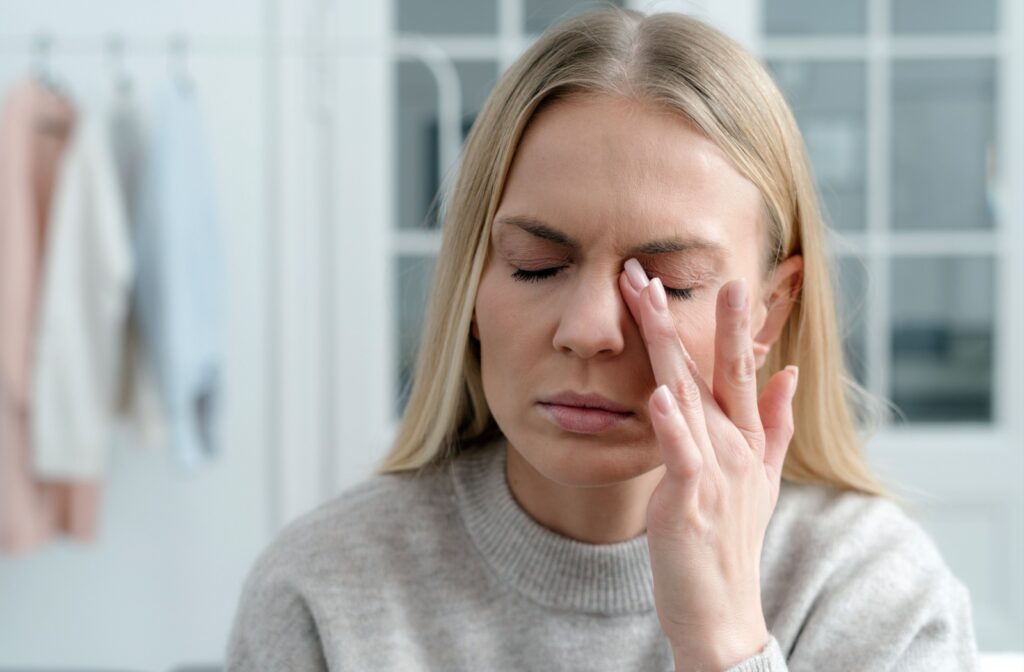
Corneal Damage
Without proper lubrication, the cornea is more vulnerable to abrasions and irritation. Over time, this can lead to scarring, which may affect vision.
Reduced Comfort & Quality of Life
Persistent dryness can make everyday activities like reading, working on a computer, or enjoying time outdoors uncomfortable. This discomfort can interfere with work, school, and leisure.
Increased Risk of Eye Infections
Tears act as a protective barrier against bacteria, dust, and other irritants. When the tear film is compromised, the eyes are more susceptible to infections and inflammation.
Contact Lens Options for Dry Eye Patients
Dry eye doesn’t automatically mean you can’t wear contact lenses. With the right type and fit, contact lenses can still be part of your vision correction plan.
- Scleral lenses – Vault over the cornea and rest on the sclera, holding a reservoir of hydrating solution against the eye throughout the day.
- Daily disposable soft lenses – Fresh lenses each day can reduce irritation and maintain a smoother, more hydrated lens surface.
- Preservative-free lens solutions – Switching to a preservative-free or lens-specific solution can reduce irritation caused by certain chemicals.
We can assess your eyes and recommend the most suitable lens option for your comfort and visual needs.
Book a Specialty Contact Lens Consultation
Dry eyes don’t have to mean giving up contact lenses. With tailored treatment and lens options, it’s possible to manage dryness while enjoying clear, comfortable vision. A dry eye assessment or specialty contact lens consultation can help determine the right plan for you.
Central Optometry offers both services, with a focus on helping patients manage dry eye and contact lens wear together. Book an appointment today to take the next step toward comfortable, healthy vision.

